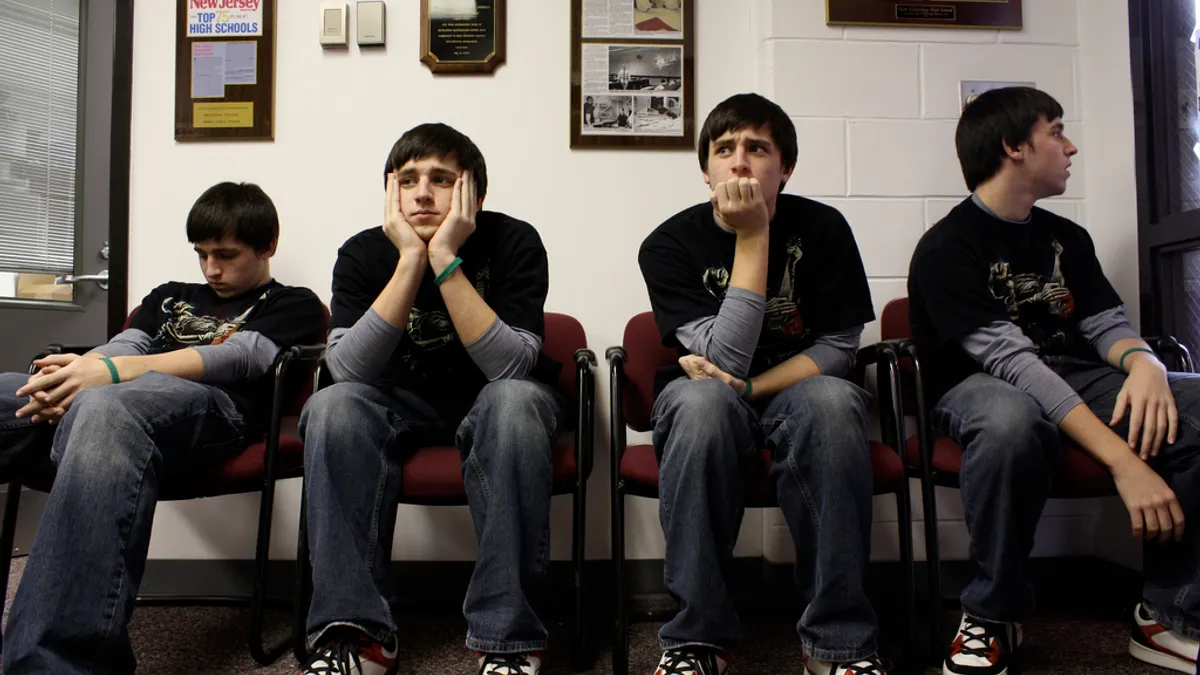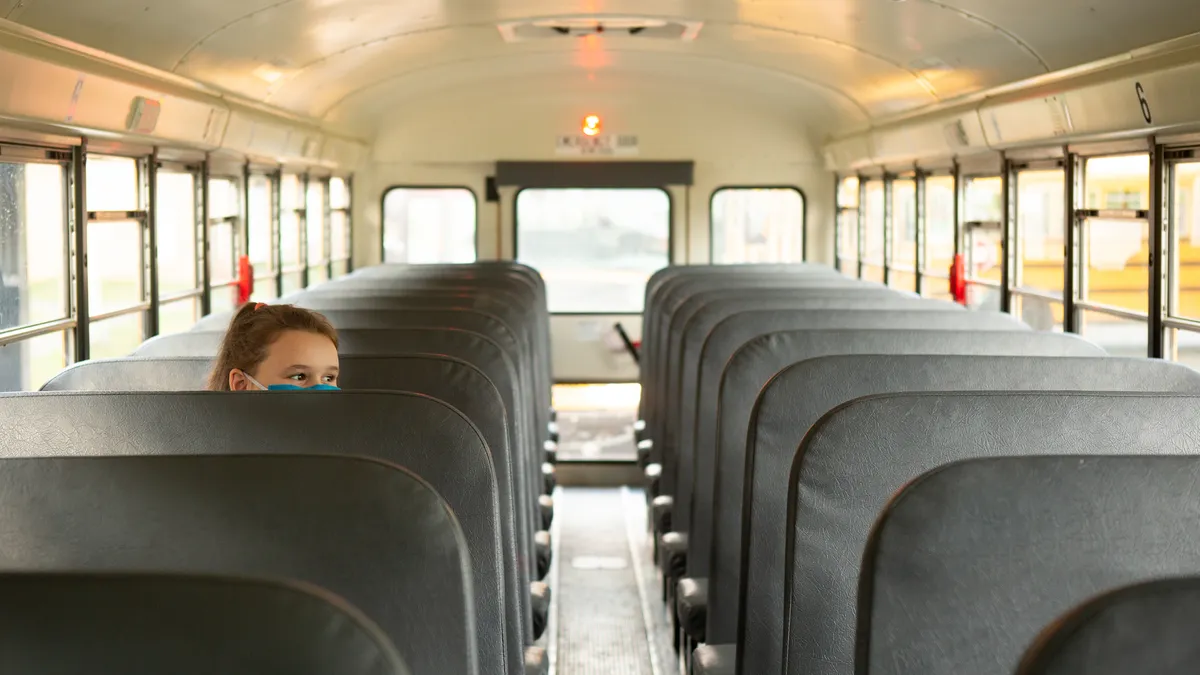Dive Brief:
-
New York's Board of Regents is doubling down on its commitment to programs that create safe havens for learning — where students feel free from discrimination, harassment and bullying — citing research demonstrating racial and sexual orientation disparities in school discipline, as well as evidence that out-of-school suspensions don't necessarily improve behavior, Chalkbeat reports.
-
The commitment runs counter to the decision of a Federal Commission on School Safety led by U.S. Secretary of Education Betsy DeVos to rescind Obama-era guidelines designed to reduce racial discrimination in suspensions and expulsions, with the commission's report claiming the rules may have led to more dangerous schools.
-
The federal commission's report suggested more access to mental health services for students, training on how to deal with an active shooter, and that schools consider arming certain school personnel — and while districts aren't required to adopt those recommendations, they may influence how some handle discipline.
Dive Insight:
Efforts to protect minority and students with special needs from ending up in jail go back several years. Law professor Tracie R. Porter published an essay in 2015 in which she sought to identify and eliminate the “school-to-prison pipeline” trend. She accused prison lobbyists of advocating for harsh punishments for small crimes, citing examples of police being called for minor offenses such as dress code violations.
These practices feed the pipeline of mostly minority students being directed into the justice system. High numbers of juvenile offenders result in high profits for the contractors that run juvenile facilities, with 40% of incarcerated U.S. students ending up in private facilities.
The federal decision to rescind the Obama-era rules cites concerns that students are afraid their peers with a history of antisocial or aggressive behavior were not being disciplined because of an attempt to create racial equity. Civil rights advocates, on the other hand, claim that dismantling that racial equity component is a step backwards for minorities since they are statistically much more likely to be suspended.
One way to keep all students out of trouble while suspended is through in-school suspensions. Retired Tucson Unified School District assistant superintendent Eugene Butler, Jr. believes in-school suspensions are more effective because that system keeps students in the school but closely monitored. This gives students time to reflect in a structured environment and out of trouble. They are able to keep up with classwork, but the punishment is that they don’t have their traditional student freedoms while serving the suspension.












